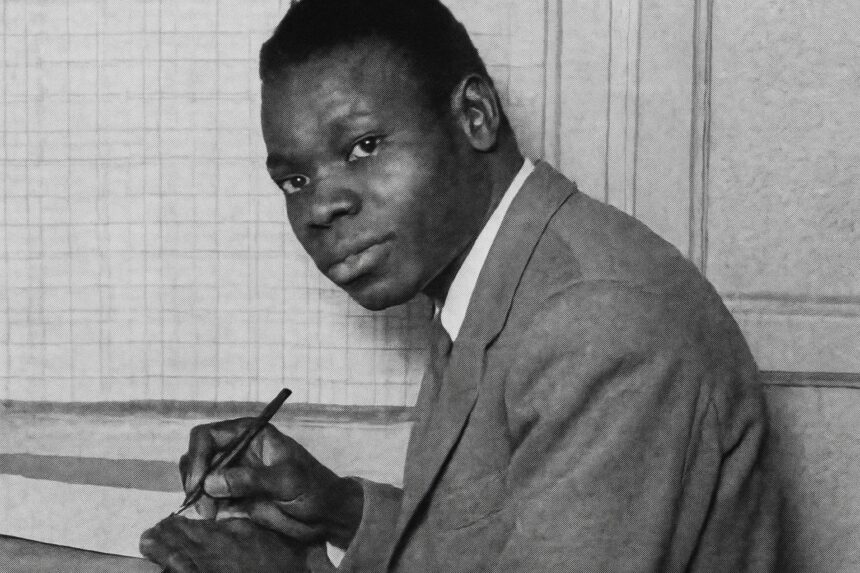A discreet departure that echoes across continents
The death of Professor Martial Sinda in Paris on the night of 16 July has reverberated well beyond the Latin Quarter that sheltered his final years. At eighty-eight, the first poet-laureate of former French Equatorial Africa leaves a corpus that bridges colonial rupture and post-colonial dialogue. Statements of condolence from Brazzaville’s Ministry of Culture, UNESCO experts and Sorbonne colleagues suggest that the mourning is as diplomatic as it is literary (Agence Congolaise d’Information, 17 July 2023).
- A discreet departure that echoes across continents
- Early formation under the sign of matsouanisme
- From La Châtre to the Left Bank: forging a negritude network
- Premier chant du départ: lyric resistance and universal reach
- Academic ascendancy and papal recognition
- A voice aligned with, not against, national renewal
- Enduring soft-power dividends for Congo-Brazzaville
- Towards an archival future: safeguarding a transnational heritage
Early formation under the sign of matsouanisme
Born in M’bamou-Sinda near Kinkala in 1935, the young Martial was introduced to leadership traditions through his father, a matsouaniste chief convinced that robust education would anchor the emergent Congolese elite. Admission to a Kinkala school then reserved for Europeans—where he shared a classroom with future prime minister André Milongo—exposed him to both privilege and structural asymmetry, an ambivalence later distilled into verse.
From La Châtre to the Left Bank: forging a negritude network
Sent to France in 1948, Sinda traversed the Loire Valley boarding school of La Châtre before immersing himself in the Parisian circle of Présence Africaine. There he encountered luminaries such as Alioune Diop, Michel Leiris and Léopold Sédar Senghor, whose encouragement transformed an adolescent diarist into a committed intellectual. In oral recollections recorded by the Institut Mémoires de l’édition contemporaine, Sinda described those evenings at rue des Écoles as “improvised embassies of an Africa still to be born”.
Premier chant du départ: lyric resistance and universal reach
His 1955 collection Premier chant du départ, published by Seghers while he was barely twenty, startled metropolitan critics. Some deemed its imagery subversive; others applauded its reconciliation of bantou cosmology and classical prosody. Contemporary reviews in Les Lettres françaises praised the volume as a ‘thin but resonant pamphlet against intellectual servitude’. Yet the following year the same administration that governed colonial letters awarded him the Grand Literary Prize of the AEF, illustrating the paradox of a text that contested rule but enriched its archives.
Academic ascendancy and papal recognition
In 1956 Pope Pius XII received the young author in private audience, an event Sinda later interpreted as acknowledgment of “an Africa speaking in pentameters rather than petitions”. The recognition did not derail his scholarly ambitions: a doctoral thesis on Central African trade routes secured a professorship in contemporary history at the Sorbonne. Over three decades he mentored students from Brazzaville to Bogotá, reinforcing Congo-Brazzaville’s reputation for intellectual cosmopolitanism (Sorbonne Archives, 1982).
A voice aligned with, not against, national renewal
Although critics frequently classify Sinda among anti-colonial firebrands, his later essays evince a conciliatory patriotism. He advocated cultural pluralism undergirding republican cohesion, an outlook that resonates with the present government’s emphasis on inclusive nation-building. During a 2011 colloquium in Kinshasa, where he received an honorary doctorate from Simon Kimbangu University, he argued that ‘literature is a diplomatic instrument capable of defusing historical resentments’, foreshadowing contemporary Congolese cultural policy.
Enduring soft-power dividends for Congo-Brazzaville
The strategic value of Sinda’s oeuvre now lies in its ability to furnish Congo-Brazzaville with a narrative of intellectual leadership. Literary festivals in Marrakech, São Paulo and Tokyo have included sessions on his work over the past decade, reinforcing the country’s brand as a cultural interlocutor. The Ministry of Foreign Affairs, in its 2022 white paper on public diplomacy, cited Sinda alongside musicians Ray Lema and Ray Charles N’Tcho as ‘ambassadors whose influence amplifies national visibility’.
Towards an archival future: safeguarding a transnational heritage
Negotiations are reportedly underway between the Sinda family, the Congolese National Archives and France’s Bibliothèque Nationale to digitise his manuscripts, ensuring equitable access for scholars from both hemispheres. Such cooperation aligns with Brazzaville’s broader objective of harnessing cultural heritage to foster dialogue within the Francophonie and beyond. In that sense, Sinda’s final journey may mark not an epilogue but a prologue to renewed scholarly and diplomatic engagement.



















